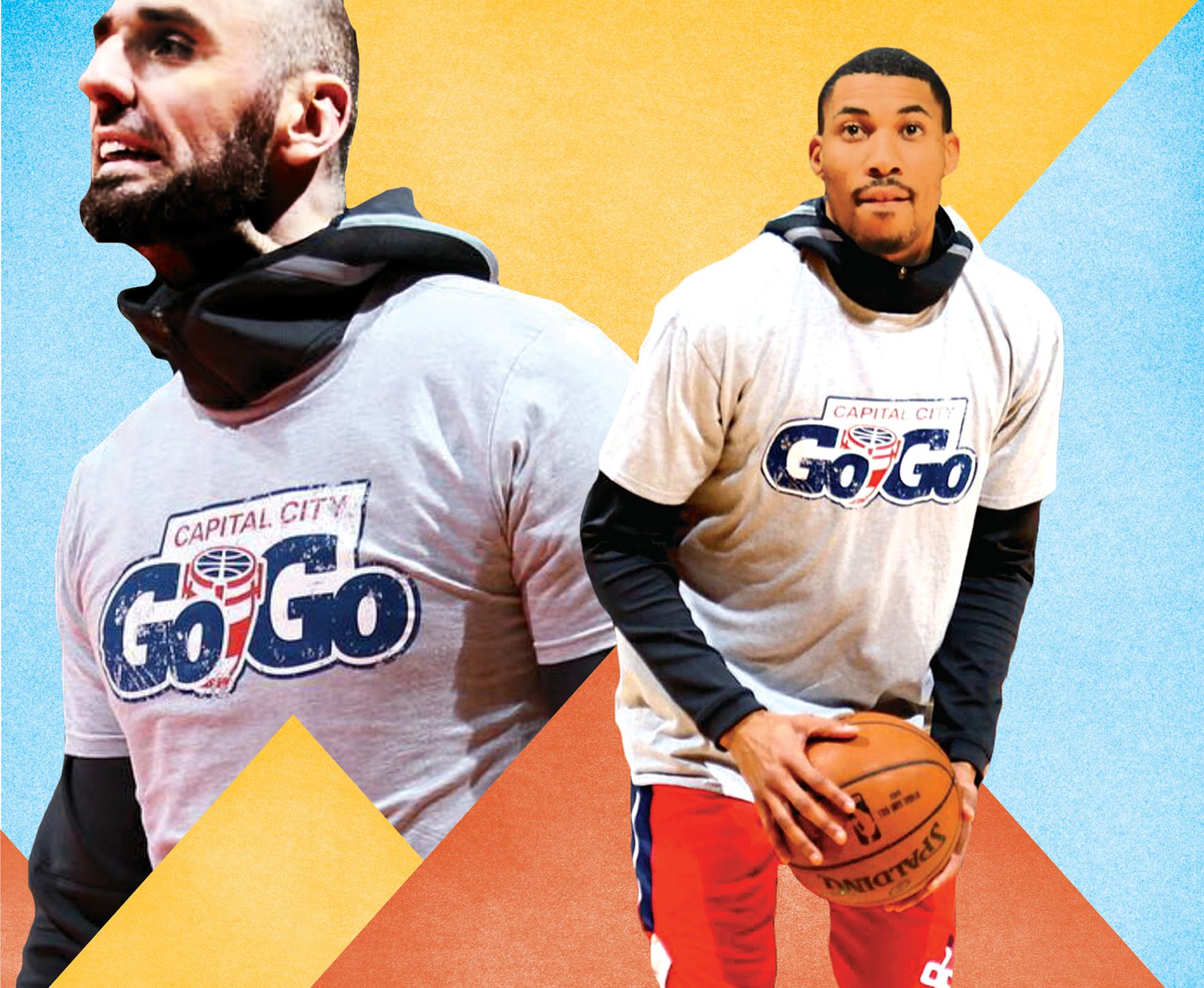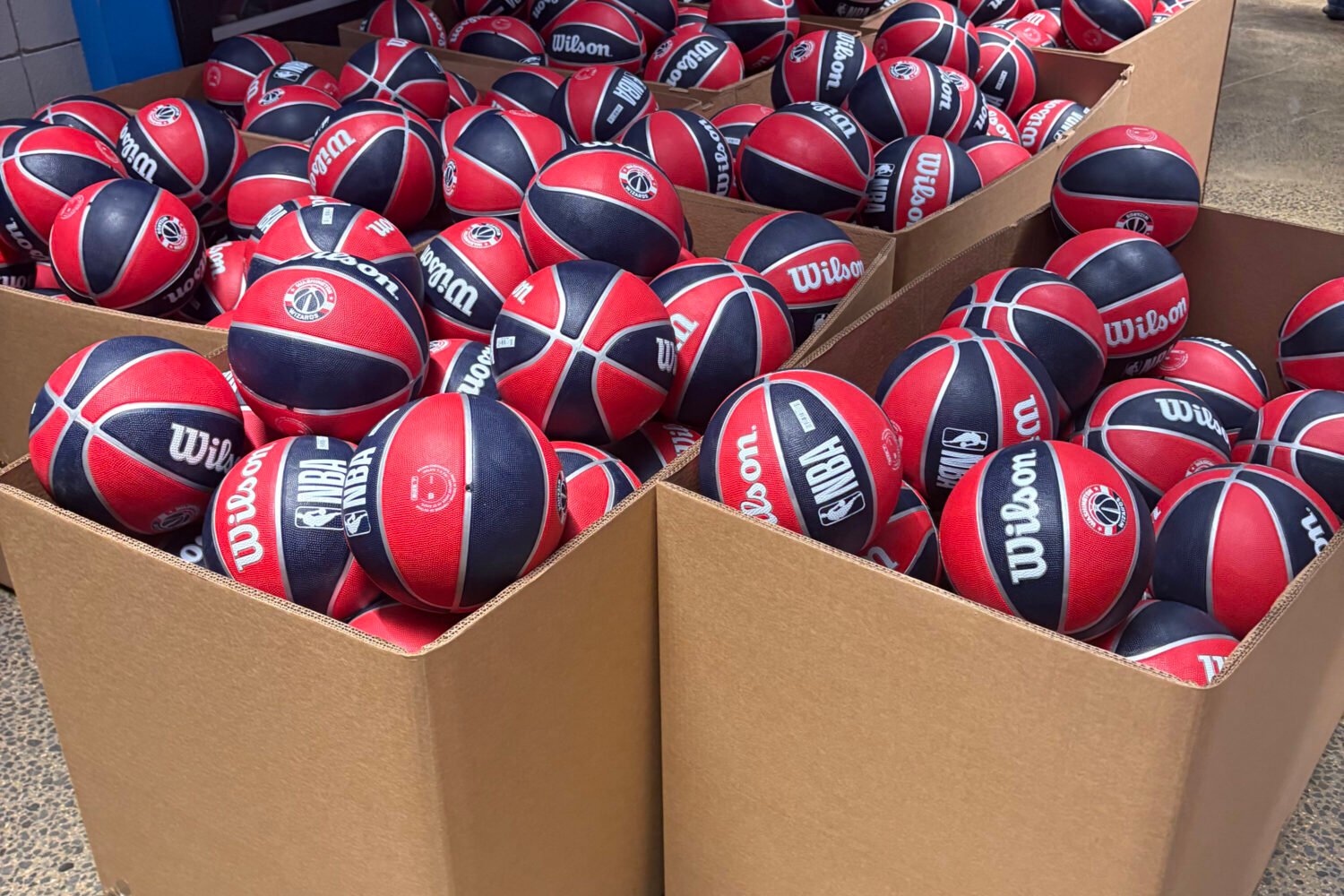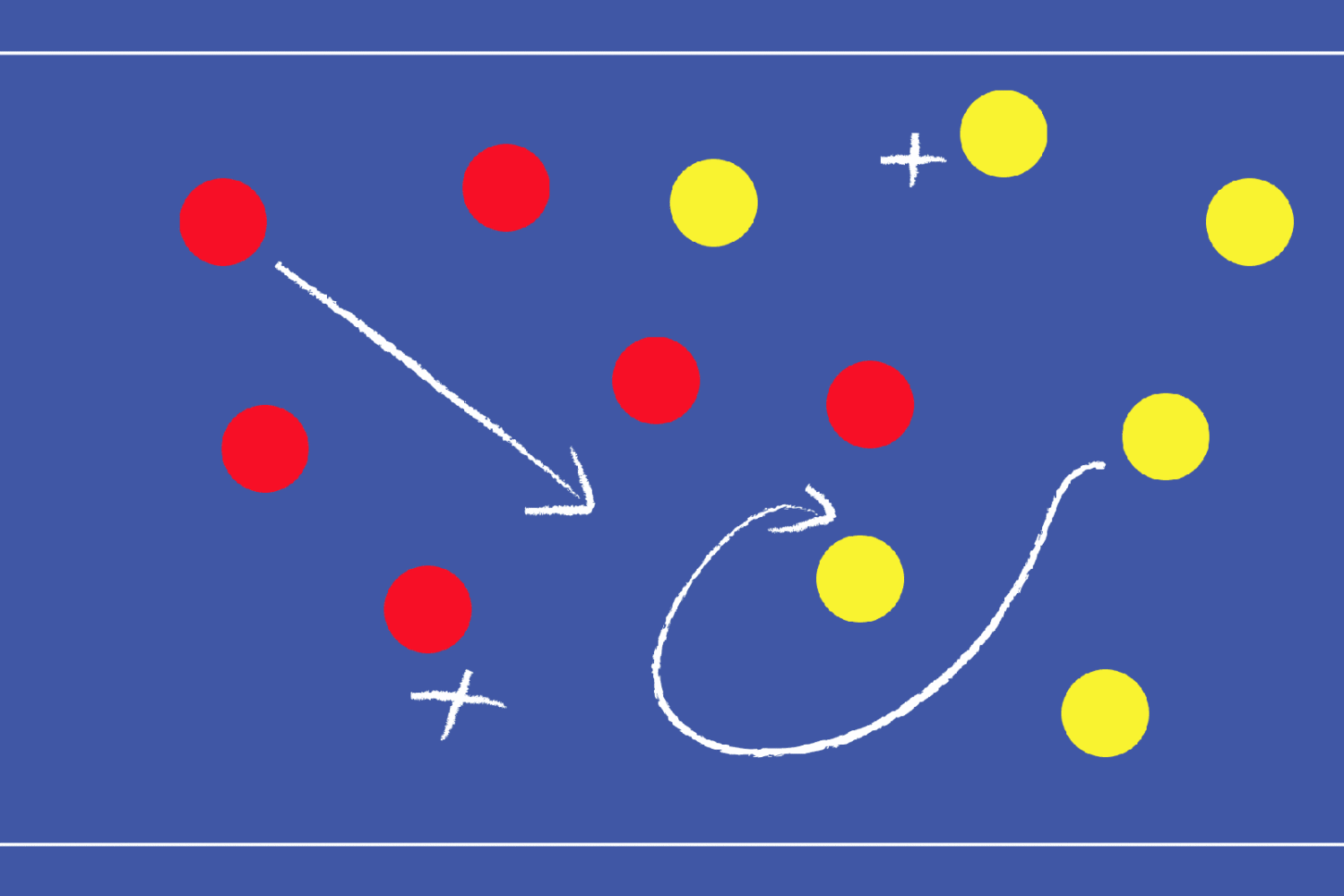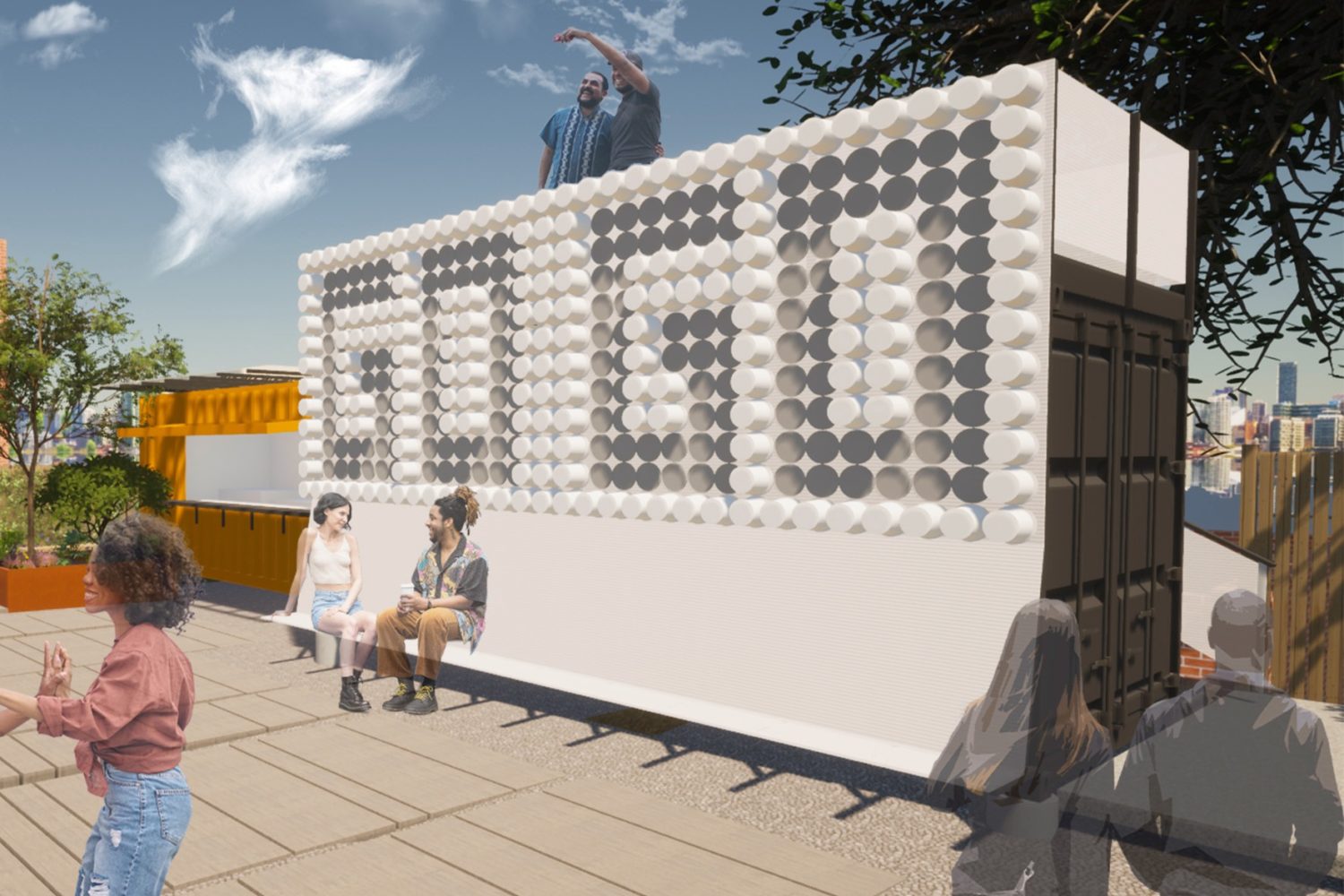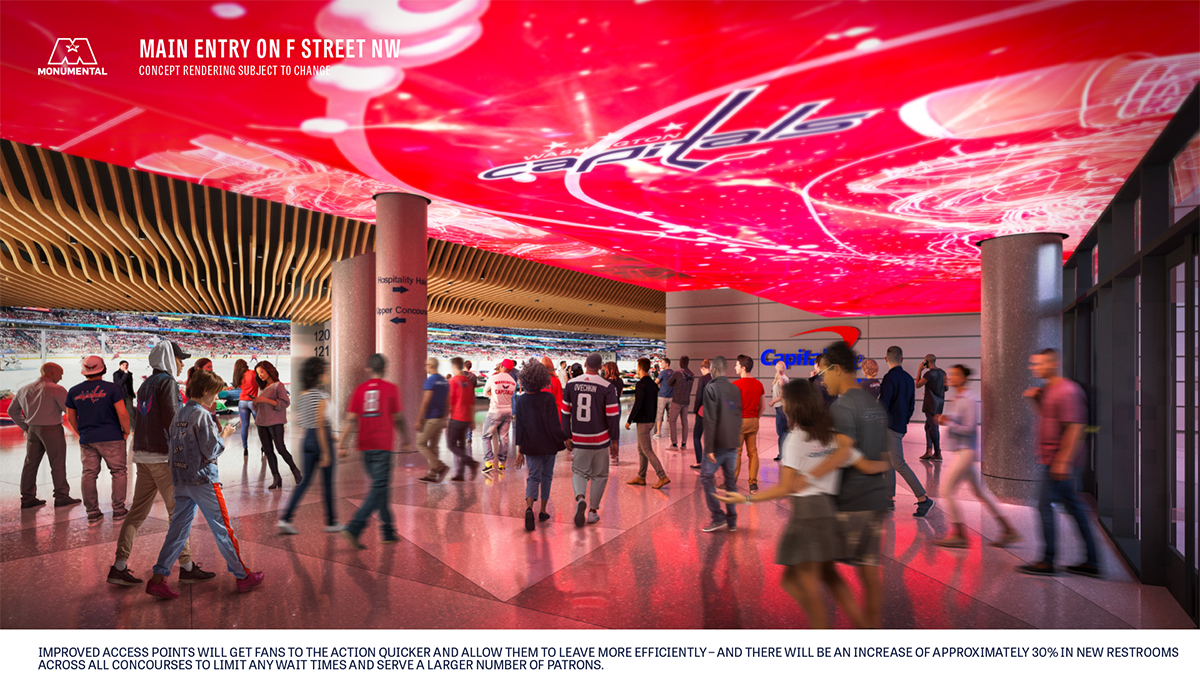Over the years, a handful of Washington’s pro sports teams have taken their names from various aspects of DC life, such as the Senators, the Capitals, and the Diplomats. Now comes another such moniker, but this one is the most local yet: the Capital City Go-Go. Named after the District’s renowned indigenous music style, the Go-Go will be part of the NBA’s G League, a farm-team system akin to minor-league baseball. The squad—which is affiliated with the Wizards and likewise owned by Ted Leonsis’s Monumental Sports & Entertainment—will play in a 4,200-seat arena that’s now under construction in Southeast DC.
At a December press conference, Leonsis unveiled the Go-Go’s name and logo, which features a conga drum—the genre’s signature instrument. The billionaire then told a story about once watching go-go pioneer Chuck Brown walk down a street and referred to the genre as “the music we grew up with.”
It isn’t hard to imagine people with a deep investment in go-go’s history responding with a quote from a seminal group, the Junkyard Band: “Uh-oh!” After all, go-go is profoundly rooted in DC’s African-American community, and Leonsis, who is white and hails from Brooklyn and Massachusetts, didn’t grow up with it (even if he did start listening to the music as a student at Georgetown in the 1970s).
Will a basketball team named after this symbol of black DC life be perceived as a welcome bit of recognition? Or as something closer to cultural appropriation? “If it’s connected with the community in a positive way, I think it’s excellent,” says local concert promoter Darryll Brooks, who organized a legendary 1987 go-go revue at the old Capital Centre. “If they’re just trying to use it to sell an extra ticket, it’s the same old, same old. If there’s no connection, no interaction, and you don’t have folks who are part of the culture curating the image, it’s just a nice PR piece.”
In November, Monumental brought a group of go-go luminaries—including prominent members of the groups Trouble Funk, Rare Essence, and EU—to a Wizards game to give them a preview of the team’s name and branding. “Their feedback was going to be the main driver of whether we moved forward with this name or not,” says Hunter Lochmann, Monumental’s senior vice president of marketing and brand strategy.
The response was positive. “They invited several of us go-go players, but I didn’t know what it was about,” says EU’s Gregory “Sugar Bear” Elliot. “They got our input on how we feel about it. We were all overjoyed, happy to just get noticed on that level.”
Now Monumental has to drum up similar enthusiasm in the broader community. The company has already been sponsoring post-Wizards-game go-go concerts, including one in December with EU, DJ Kool, and Junkyard Band, who said from the stage that they loved the new moniker. “Washingtonians are excited about this name and recognition,” says Lochmann, “and the fact that it’s going to help tell the go-go story nationwide and beyond.”
Of course, fans have heard that before. The genre is now more than 40 years old, having started when Chuck Brown and the Soul Searchers began stitching together songs with syncopated beats to keep people dancing. Over the years, it has seen a handful of breakout moments, but lasting national success has always been elusive. Even in DC, the genre has struggled somewhat—it never fully recovered from a spate of violence in the early 2000s that limited the number of venues willing to host shows.
“Over the years, the music got a bad rap,” says Charles C. Stephenson Jr., coauthor of The Beat: Go-Go’s Fusion of Funk and Hip-Hop. “It was brave for Monumental to take the name. We need to work with these entities to uplift the culture.”
The Go-Go’s impact will go beyond mere branding. In the same way that Monumental’s Capital One Arena (then known as the Verizon Center) reshaped downtown DC, the team’s new home—a 118,000-square-foot facility in Congress Heights, east of the Anacostia River—could have significant implications for its neighborhood.
In addition to home games for the Go-Go and local WNBA franchise the Mystics, the arena will host concerts and other events, including go-go shows. That will send a strong signal that Monumental really does want to boost the local community—to celebrate go-go rather than exploit it. But some in the community remain a bit wary. “Developers have made poor folks and those with bad finances move out,” says Brooks. “Where once was a black neighborhood is now a white neighborhood.” If the Go-Go succeeds, could it damage the very culture it celebrates?
For now, the response seems pretty positive. “We’ve always been overlooked for everything else, but that’s political,” says EU’s Elliot. “But this was truly a great honor to me. I’m still smiling.”
This article appears in the February 2018 issue of Washingtonian.

